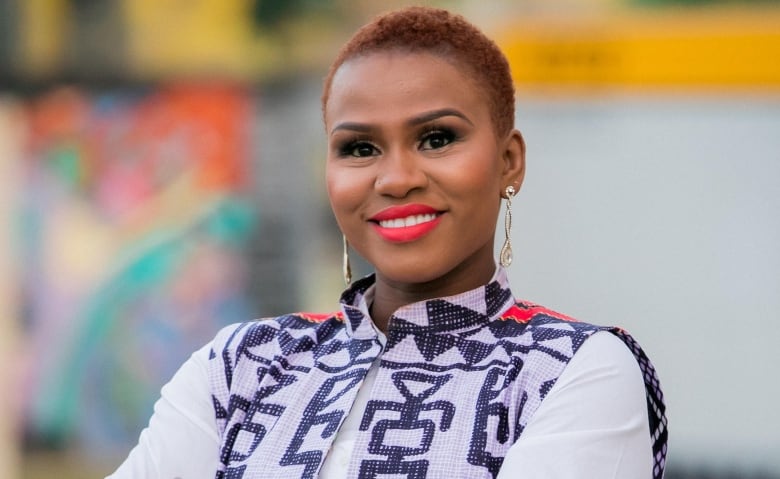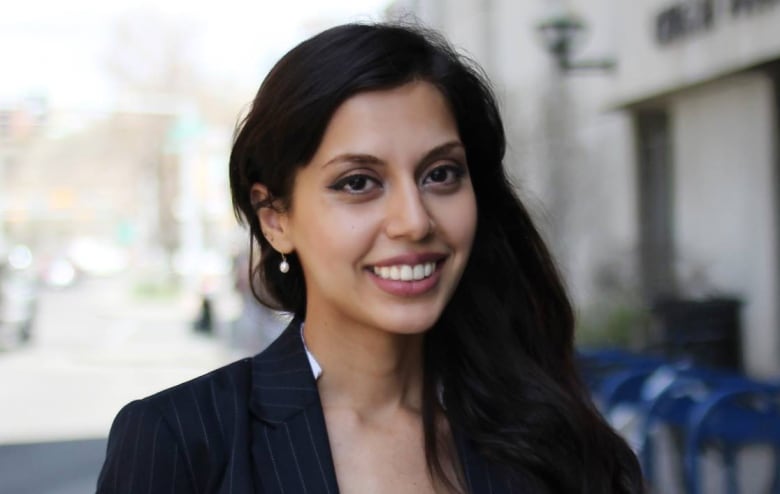CBE begins work on commitment to address racism, equity with establishment of advisory council
Advocates and parents worry school board's plan is 'performative,' lacks action

The Calgary Board of Education is advancing its commitment to anti-racism and equity by launching its Collaboration for Anti-Racism and Equity Support Advisory Council (CARES), after it was delayed due to the complications of reopening schools this fall.
But some advocates and parents worry the plan lacks specific actions and duplicates existing research and work.
Chief superintendent Christopher Usih said the initiative was launched following protests and complaints in late June.
"We had some students and families indicating that there were issues around racism that needed to be addressed," he said.
"As a result of some of those complaints that were raised, we felt it was important to establish an advisory council where we put together different individuals within the organization, including students and staff, and also provide an opportunity to listen to parents."
The CBE said the initiative will engage multiple strategies to address racism, equity and inclusion in CBE schools and workplaces, including the introduction of an equity factor to the board's resource allocation method to account for variability in student needs in schools across the system.
The change is meant to ensure resources are better allocated to support student success where it will have the greatest impact.
Recently, as a part of CBE CARES, the board established an advisory council headed by Dr. Marie Delorme, who will lead sessions with students, families and community members in the months to come to hear about experiences with racism, inclusion and equity in CBE schools.
"Dr. Delorme is well respected in leadership and organization, and her research focuses on inter-cultural leadership," Usih wrote in an Oct. 1 update to all CBE staff members.
Delorme declined to be interviewed for this article.

Usih said the overall mandate of the advisory council is to offer suggestions and advice on strategies to address racism and discrimination in CBE schools and workplaces.
"The advisory council's work will be informed by CBE policies, programs and practices as well as research gathered on other school boards and organizations that may be helpful to address racism and equity at the CBE."
Based on all the feedback, advice and recommendations gathered, Dr. Delorme will report back to Ushi with recommendations for moving forward by March 2021.
"As an organization, we will then consider actions arising from the report to enhance equity, achievement and well-being for all," he said.
Wunmi Idowu, mother of two CBE students, said she's torn between seeing "a glimmer of hope" in this initiative and feeling like it's "preformative."
She said she hopes there are more experts, besides Dr. Delorme, who are called upon through this process.
"She doesn't have any type of anti-racism or any type of discrimination training.… We need to do better to ensure that the school board is able to meet the interests of the Black population and the Indigenous populations in schools," she said.
"We need somebody that would be able to rationalize and bring forth real change and reform in the wake of the how the CBE deals with racism."
Idowu said she looks forward to participating in the discussion forums with the advisory council.
"I think it's something that would allow us to be able to voice their opinion and allow us to be able to tell experiences so they can have documentation of what has happened," she said.
"My daughters have been told they look like poo, that they smell funny, that their hair looks like cotton wool. It's unfair to disregard a human being because of the way they look."
When Idowu has taken these issues to school leadership, she said she's been disappointed by the lack of action.
"They look at me as a problematic Black woman," she said.
Idowu said she has called the school, attempted to set up meetings with the principal and eventually showed up at her daughter's school to speak with the principal.
"I say I'm the person who has been calling, can we speak about the situation because you're causing my daughter unrest and I'm spending money on a psychologist because of what she's going through in your school."
Still, she said there was no accountability and much finger-pointing.

Idowu said she hopes to see those sort of interactions change once the board hears from students and families like hers, who have felt the impacts of racism at school firsthand.
"I believe having those type of stories being taught in that forum will allow more opportunities for people to be able to understand and protect the students who are in the schools better than how they were doing it in the past," she said.
The CBE said it will conduct a literature review with support from the University of Calgary.
"To ensure that CBE is informed of current and emerging issues that are relevant to our local context," Usih explained.
"We believe that there's good work happening not only in our province, but across the country and in other jurisdictions as well, in terms of how we we create an equitable learning system for all students. The key driver in all of this is that we believe in these students, we believe in the success of these students every day, no exceptions."
In June, the Canadian Cultural Mosaic Foundation partnered with a Western Canada High School teacher to launch a petition asking the CBE to establish a task force to root out systemic racism in the system.
But CEO Iman Bukhari said she's not all that impressed by what CBE CARES has set out to do.
"It's a very reactive move rather than something that they should have really done years ago, in my opinion," she said. "Also, it's currently very broad. It's not very focused. It's just, 'we're going to have discussions and we're going to have suggestions and then we're going to have recommendations.'"
Bukhari said that while that is where this kind of work generally starts, much of this kind of research and work has already been done.
"I guess I'm not sure if they've done their research or have any idea of what's already out there. Our organization already did a literature review. We already did a research study with 150 Albertan teachers, many of whom were from CBE, in fact, about racism in school already, and showing that it is a problem and it is a concern and teachers don't have the resources," she said.
"It feels a little bit like they're just redoing some of the work that already exists rather than tackling the problems."
Bukhari said the foundation and those behind the petition would have preferred to see the CBE take concrete actions.
"We would have loved to see them gathering some real data within their classrooms in terms of how students are doing, in terms of their race and what kind of help they're getting, what kind of help teachers are getting, what's already out there," she said.
"It seems what they're going to do now is start having these discussions. Then they're going to have the committee, who is in the end probably going to say, 'hey, we need race-based data.' But then it takes a long time to go through those discussions, to go through the suggestions or recommendations and the entire process, perhaps a year, sometimes even two, before they finally start collecting the stats."
The foundation released a study in 2019 highlighting racism as a concern to Albertan teachers. It also gathered more than 72,000 signatures for a petition for the City of Calgary to create a task force.
Bukhari said if the foundation is allowed, they will certainly share their knowledge and resources with the school board to address issues of racism and equity.

Idowu said changes she'd like to see include hiring more diverse teachers and staff, as well as school partnerships with diverse community groups like the one she founded called Woezo Africa Music & Dance Theatre Inc.
"I've been trying to get into the Calgary� Board of Education to teach about our programming, which is called 'Africa is not a country, it's a continent,' which has to do with storytelling, music, drama and craft-making to inform students that Africa is not just a small country, is a continent with 54 countries — so they can open their mind and more students can get the information that the school is not providing to them in a curriculum," she said.
"I have been trying to get into the CBE to be able to push for this type of programming for the past 12 years, and no school has ever contacted me, although I'm filling in the forms to let them know this is what we do, I'm sending them documentation. We're well known in Calgary and in Canada for what we do."
Usih said he believes in the work of the council, and that the council will reflect CBE students and staff and also the voice of parents and communities.
"We recognize that racism exists and unfortunately there are members of our families or staff or students who experience racism. We're not going to shy away from acknowledging the fact that for some of our students and their families, this is part of a lived experience," he said.
The chief superintendent said the CBE hasn't committed to any other specific actions like anti-racism training yet, but said that's one of the potential outcomes.
"I think it's important for us to listen. We've also engaged our Elders Advisory Council, our Indigenous elders, to seek their input in terms of this process as well," he said.
"What I don't want to do is speculate on what the outcome of the report is going to be in March, because I think that we recognize that what we've talked about in terms of training could very well be one of several actions that we need to take as a result of engaging in this process."
For more stories about the experiences of Black Canadians — from anti-Black racism to success stories within the Black community — check out Being Black in Canada, a CBC project Black Canadians can be proud of.


